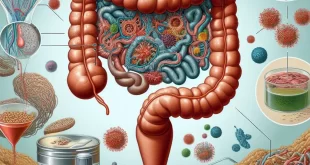President Donald Trump announced a drug that could be used to treat coronavirus on Thursday, but some experts questioned its effectiveness.
Hydroxychloroquine is not new and has been used to treat diseases such as malaria and rheumatic diseases. Its antiviral properties have also shown results in cases of influenza and SARS.
Here’s everything you need to know about hydroxychloroquine and its role in fighting COVID-19.
What kind of drug is it?
MedlinePlus classifies hydroxychloroquine as an antimalarial, prescribed to treat malaria. It has also been used to treat lupus and arthritis.
It was first approved in the United States in 1955, according to the New York Post .
You may have heard it by its brand name, Plaquenil. A similar drug, chloroquine, also exists and has been used interchangeably to treat pneumonia related to COVID-19.
Patients take hydroxychloroquine in tablet form, to be taken orally.
It would be considered an economical solution. Reports have called the cost of the drug “negligible”, making it worth investigating treatment and prevention.
According to Christian Perronne, responsible for infectious diseases in a Paris hospital, the drug has existed for “decades”.
“I really believe in hydroxychloroquine … I think from an ethical point of view, we should suggest it to all patients with serious illness who are hospitalized, under supervision and under short treatment. Thereafter, in terms of side effects, at high doses, it is possible that patients may experience pain or fever, but it seems that the treatment is effective at lower doses, according to Chinese data. In any case, the harmful effects of this compound are not dangerous. “- Perronne
Has it been tested?
Hydroxychloroquine was first tested in the laboratory for use against COVID-19 by researchers from the Chinese Academy of Sciences, who published their results on March 9. They found the drug to effectively kill the deadly virus.
This week, French researchers published the results of a preliminary trial using 36 COVID-19 patients. The study, led by Didier Raoult of the University of Aix-Marseille in France, has not yet been the subject of a peer review but shows promising results.
Twenty of the patients received 600 milligrams of hydroxychloroquine per day, and the rest did not serve as a control group.
After six days, 70% of patients who received the drug were considered cured, compared to only 12.5% of the control group, according to Newsweek .
“The results have yet to be fully examined, and of course, further large-scale controlled trials are essential to accurately determine the efficacy of [the drug] as a treatment for COVID-19.” But in the oppressive darkness of the current situation, any ray of hope is welcome. – Andrew Preston in a statement to Science Media Center UK
Has it been approved by the FDA?
Probably not yet, at least to treat COVID-19.
Trump said at a press conference on Thursday that “we will be able to make this medicine available immediately” by prescription.
He described hydroxychloroquine as “accelerated” by the FDA.
“Normally, the FDA would take a long time to approve something like this, and it is – it was approved very, very quickly and it is now approved by prescription,” said Trump.
However, conflicting reports from Bloomberg indicate that the FDA says it has not yet been approved.
“An FDA spokesperson said that the drug had not been approved for use in Covid-19 patients. However, American doctors are legally authorized to prescribe medication for any illness or condition they consider medically appropriate. – Anna Edney, Bloomberg
FDA Commissioner Stephen Hahn said the United States would use hydroxychloroquine first in a controlled clinical trial.
Experts are still hoping that this cheap old drug could be the answer to the coronavirus pandemic that is affecting hundreds of thousands of people around the world.
“If the clinical data confirm the biological results, the new coronavirus disease will have become one of the simplest and cheapest to treat and prevent among respiratory infectious diseases,” concluded the researchers from the laboratory study. March 9.
 medjouel.com Study Non Stop
medjouel.com Study Non Stop



